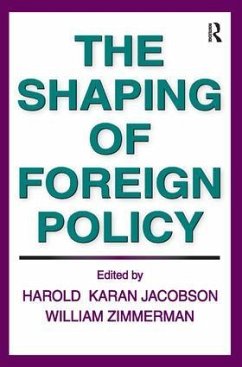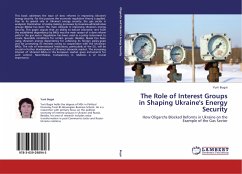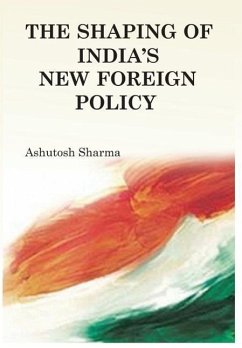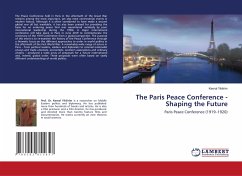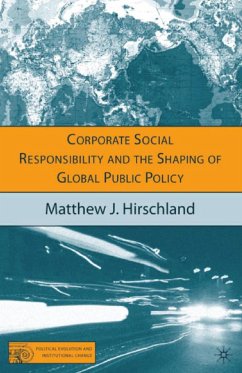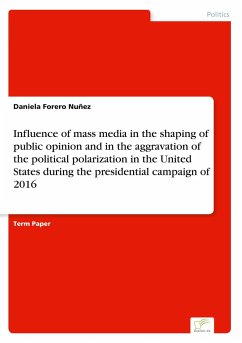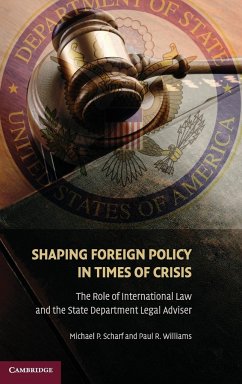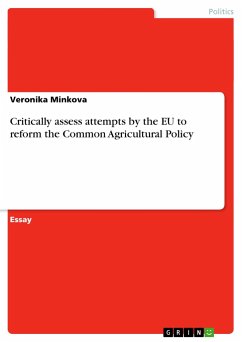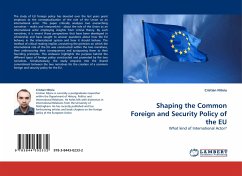
Shaping the Common Foreign and Security Policy of the EU
What kind of International Actor?
Versandkostenfrei!
Sofort lieferbar
32,99 €
inkl. MwSt.

PAYBACK Punkte
16 °P sammeln!
The study of EU foreign policy has devoted over the last years great emphasis to the conceptualization of the role of the Union as an international actor. This paper critically analyzes two overarching narratives realist and interpretivist - about the role of the Union as an international actor employing insights from critical theory. By such narratives, it is meant those perspectives that have been developed in scholarship and have sought to answer questions about how the EU behaves in the international system and how it should behave. The method of critical reading implies uncovering the pre...
The study of EU foreign policy has devoted over the last years great emphasis to the conceptualization of the role of the Union as an international actor. This paper critically analyzes two overarching narratives realist and interpretivist - about the role of the Union as an international actor employing insights from critical theory. By such narratives, it is meant those perspectives that have been developed in scholarship and have sought to answer questions about how the EU behaves in the international system and how it should behave. The method of critical reading implies uncovering the premises on which the international role of the EU was constructed within the two narratives, then underscoring their consequences and juxtaposing them to their founding principles. This endeavor highlights the purpose behind the different types of foreign policy constructed and promoted by the two narratives. Simultaneously, the study enquires into the shared commitment between the two narratives for the creation of a common foreign and security policy for the EU.



